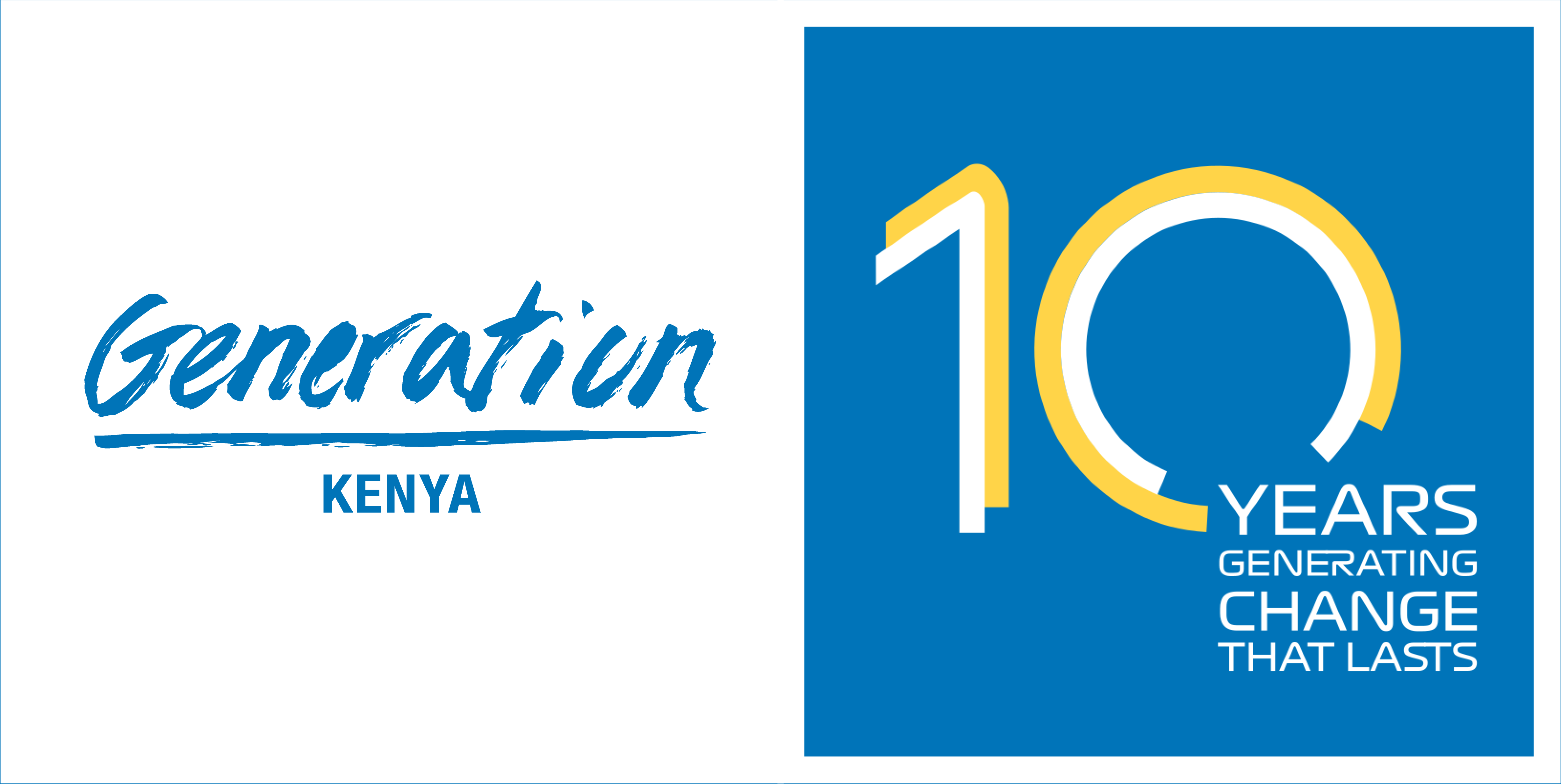Kazi Bora Project Response to Mental Health for Kenya’s Apparel Industry Workers
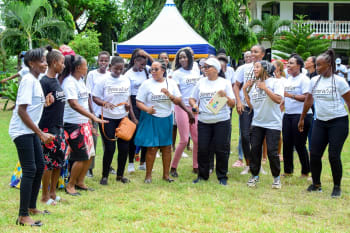
The World Health Organization (WHO) reports that 1 in every 8 people in the world lives with a mental disorder. It further estimates that 350 million people worldwide suffer from depression. In Kenya, WHO reports that a staggering 1 out of 4 persons who seek healthcare in Kenya have a mental health condition. Depression is common, and there are increasing rates of substance and alcohol use disorders. Despite the Ministry of Health (MoH) Mental Health Taskforce having developed the Kenya Mental Health Policy 2015-2030, mental health issues are reported to be on the rise, with research pointing to the prevalence of depression to be relatively higher among out-of-school adolescents.
A Journal published in 2024 by the Africa Population and Health Research Centre on ‘Occupational Health: A Systematic Review of Work-related Health Problems of Factory Workers in the Textile and Fashion Industry’ points out that workers suffer from anxiety, depression, and stress from workload and pressure, hence making them unstable with reduced productivity. It further indicates that these workers endure long sitting postures, poor workspace conditions, and long working hours to complete their overload of tasks. This situation results in several health problems that affect the workers’ productivity, mental health, and well-being. Generation Kenya and IDH (the Sustainable Trade Initiative), through the Kazi Bora” Better Jobs” project, working primarily within the Export Processing Zone (EPZ) in the Coastal Region, have partnered to support textile and apparel workers with access to mental health and psychosocial support services (MHPSS).
The Kazi Bora project aims to address systemic challenges in the Textile and Apparel industry through targeted skills development and improve working conditions for the workforce by ensuring holistic interventions that enhance worker well-being. Recognizing mental health challenges, the project has put in place strategic and holistic interventions geared toward addressing them.
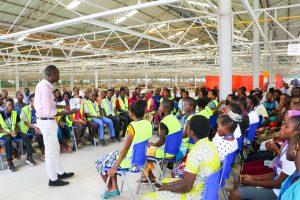
- Targeted Mental Health Awareness Training During Training of New Textile and Apparel Workers: Generation Kenya’s training, which is accredited by the National Industrial Training Authority (NITA), continues to be the primary source for providing entry-level textile and apparel workers to the Coastal EPZs. This has provided a unique opportunity for the integration of mental health awareness training during and post eight-week training. Since the inception of the Kazi Bora project in October 20222, we have graduated 2570 learners through the Kazi Bora project, 62% of whom have secured jobs as Sewing Machine Operators, and placement is still ongoing. The mental health awareness training, often conducted within the factory set-up and provided by industry experts, prepares new workers with skills and tools for managing stress, coping with anxiety and depression, and addressing other mental health challenges. This training also emphasizes the importance of maintaining a healthy work-life balance, building resilience, and handling emotional and psychological difficulties at work. By incorporating these essential skills, new workers are better equipped to navigate the demands of their roles and maintain their overall well-being.
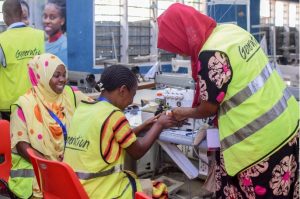
- Peer Support System: The Kazi Bora project has established a mentorship program that pairs highly experienced peers from the industry with newer employees. Research has shown that there are also some positive health effects for both the mentor and mentee, including reduced stress levels at work, coaching on navigating workplace challenges, and how to bounce back strongly from setbacks.
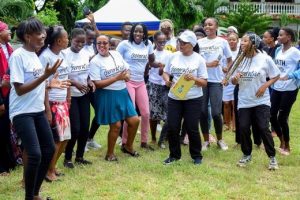
- Community Engagement Activities: Factory workers need to find a supportive community, ways to keep fit, and have a sense of belonging. Recently, the Kazi Bora, through the support of other partners like the Swedish International Development Cooperation Agency (Sida), Ezrah Charitable Trust, and Challenge Fund For Youth Employment (CFYE), managed to bring together over 750 Generation Kenya’s alumni from the textile and apparel workers to a community event whose main theme was mental health and addressing gender-based violence. Such events continue to be crucial because they provide opportunities for the workers to find peer support, share challenges, and find solutions to challenges, including mental health, that they face while at work.
- Toll-Free Self-Care Helpline: In collaboration with the Savannah Foundation, Generation Kenya has established a toll-free helpline to provide counseling services and support for textile and apparel workers, prioritizing their overall well-being. A self-care service that has proven to be a game changer, as many can now anonymously talk to a counselor who can conduct psychological first aid and help them further.
The Kazi Bora response to mental health within the textile and apparel industry in Kenya continues to yield results and set an example to emulate in the region and globally. As the sector continues to grow, especially within the East African region, it’s paramount for stakeholders to join hands and support the well-being of these workers because the sector’s growth depends on healthy and productive human resource capacity.
By Nelson Komba
